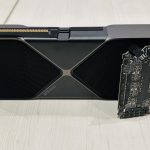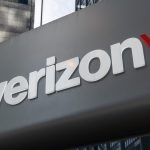After the 2016 election, many commentators urged President-Elect Trump to follow the lead of President Carter, and create a blind trust. The Associated Press, for example, observed “The tradition stretching back to Jimmy Carter in the late 1970s is for presidents to put personal holdings such as stocks into a ‘blind trust’ run by an independent trustee with no ties to the occupant of the Oval Office.” That tradition, however, was not so clear.
Governor Jimmy Carter of Georgia operated successful farms and a peanut warehouse business in the Peach State. The 3,000 acres of farmland had been in his family for six generations. In 1977, President Carter’s shares in the family enterprise were valued at approximately $350,000, or about $1.8 million in present-day value. The business was valued at about the same amount. On January 4, shortly before the inauguration, President Carter announced a plan to transfer his holdings from his family businesses into a trust. This trust agreement would let Carter retain ownership of the land, but “insure that he will not benefit financially from agricultural policy decisions that he may make as President.” Specifically, the farm and business would be leased for a fixed amount that would not be affected by the administration’s policies. But Carter would continue to receive income from the businesses while he was in office. In the trust document, Carter explained that he “wants the trustee to arrange the assets of the trust so that no one should reasonably assert that [his] actions as President were motivated by a desire to foster his own personal monetary gain or profit.” (p. 140).
Carter’s arrangement has often been described as a blind trust. Indeed, the Carter Presidential Library calls the arrangement a “blind trust.” Carter’s trust, however, was not blind in every sense. Pursuant to Section 102(b)(3) of the Ethics in Government Act, which Carter signed in 1978, a strict wall of separation was needed between the grantor and trustee. The trust, however, was managed by Carter’s close personal friend and longtime confidant, Charles Kirbo. And Kirbo served as an adviser to the President, frequently visiting Carter in the White House. Kirbo was not an independent, disinterested trustee. The New York Times reported that the Lincoln bedroom was Kirbo’s “home away from home.” Moreover, the President was not really separated from his enterprises. In 1977, Carter had to “bail out” the family business.
Eventually, the President would acknowledge that the trust was not blind. In 1979, Carter’s team characterized the trust as open, rather than blind. Even after that recharacterization of his role as trustee, Kirbo continued serving as trustee. The New York Times observed that had Carter chosen to claim his trust was blind, “he would have taken the risk that Mr. Kirbo, a close friend and confidant, might be ruled an invalid trustee.” Under the rules, “[t]he trustee of that blind trust must be completely independent of the person whose business is being managed. But with “an open trust,” the director of the Office for Government Ethics explained, “Mr. Kirbo’s role [was] a moot point.”
There would be more conflicts with Carter’s businesses and his presidency. In 1976, the President’s brother, Billy Carter, had taken a $6.5 million loan for the family business from the National Bank of Georgia—approximately $30 million in present-day value. (Billy Carter was perhaps most famous for marketing “Billy Beer,” a beer that bore his name.) In January 1977, President Carter appointed Bert Lance, the President of the National Bank of Georgia, to serve as director of the Office of Management and Budget. Lance resigned as director in September 1977 after allegations arose concerning his mismanagement of the bank. Lance was tried and acquitted on nine counts of bank fraud.
In March 1979, Attorney General Griffin Bell appointed Paul J. Curran as special counsel to investigate whether loans from the National Bank of Georgia to Carter’s business may have been illegally diverted to Carter’s presidential campaign. (Curran was not appointed as an independent counsel under the Ethics in Government Act of 1978.) Curran deposed President Carter, who testified under oath for nearly four hours. In October 1979, the special counsel concluded his investigation. Curran found “no evidence whatsoever . . . that any monies were diverted from the warehouse [business] into the campaign.” I contacted the Carter Library in Atlanta to obtain a copy of the Curran report, but was told it was still sealed. I were not able to find any records suggesting that the Carter businesses transacted with state or foreign governments.
In short, Carter’s trust was messy. The Washington Post described the complex arrangement this way: Carter had “two fairly large businesses (particularly for the time), a cozy relationship with the guy put in charge of his business, and, at one point, the appointment of a special counsel to dig into loans one of his businesses received—from a bank whose president ended up serving in Carter’s administration.” After Carter left office in 1981, the businesses were over $1 million in debt.
Billy Carter would create even more financial conflicts for his brother. In 1980, Billy became a registered agent of the Libyan government, and accepted a $200,000 loan from the Gaddafi regime. Billy defended himself from the scandal, which became known as Billygate. He said, “I considered myself to be a private individual who had not been elected to public office and resented the attention of different Government agencies that I began to hear from almost as soon as Jimmy was sworn in.” A Senate investigation found that the President was negligent in not disassociating himself from his brother’s foreign entanglements. Billy would only pay $1,000 of the loan.
The post President Carter’s Peanut Business and the “Blind” Trust appeared first on Reason.com.






